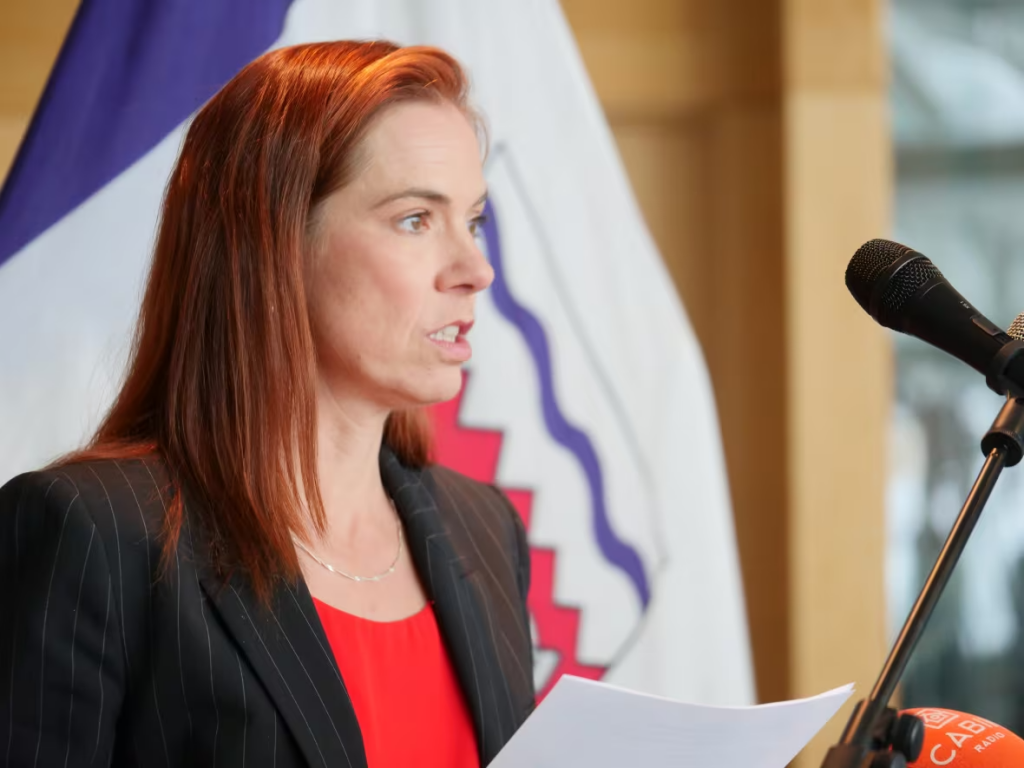N.W.T. seeking exemption after Ottawa cuts funding for most of its heating rebates

The federal government isn’t funding rebates for high-efficiency propane furnaces or other fossil fuel-burning heating systems anymore — a change the N.W.T. government is trying to get an exemption from.
A federal program that gave the provinces and territories money to reduce greenhouse gas emissions — and which largely funded the N.W.T.’s rebates — stopped at the end of March. A new version of that program now stipulates the money can’t be used to offset the cost of fossil fuel appliances.
Robert Sexton, the territory’s director of energy and president of the Arctic Energy Alliance’s board of directors, said the N.W.T. government has asked for an exemption to that because there aren’t other good substitutes for home heating in the North.
“From our perspective, going from a traditional sort of oil boiler or furnace that a lot of people have in the North … to high-efficiency propane is better than staying on oil,” he said.
Mark Heyck, the executive director of the Arctic Energy Alliance (AEA), shares that sentiment. AEA doles out territorial rebates and does energy efficiency programming across the N.W.T. He suspects the “vast majority” of people in the N.W.T. are using inefficient home heating systems — whether it be old wood stoves or old propane furnaces.
“By moving to higher efficiency, even fossil fuel-based systems, you’re still reducing greenhouse gas emissions. You’re providing the same level of heat in a home or a building, the same level of comfort, but you’re using less fossil fuels because the equipment is that much more efficient,” Heyck said.
Without an incentive, he worries residents, businesses and organizations are likely to choose the cheapest option to replace their heating systems when it comes time.
N.W.T. Infrastructure Minister Caroline Wawzonek said in an emailed statement to CBC News that if the federal government doesn’t grant an exemption to the N.W.T., the program would not address the N.W.T.’s unique needs as it moves toward a lower carbon future.

“The exclusion [of] high-efficiency propane furnaces and boilers fails to consider our current limited alternatives for home heating. Although heat pumps have potential in the N.W.T, especially in hydropower zones, fossil fuel-based heating will remain central for northerners to meet their heating needs for some time,” she said.
Wawzonek said the N.W.T. government was not consulted about the funding change, and was seeking flexibility or programs tailored to the North’s needs.
AEA ‘highly doubtful’ exemption will be made
Sexton said the N.W.T. government is still waiting for a response about the exemption from Ottawa, and he’s hoping to hear back about it this summer.
“They are aware of our need and that we would like to have an approval of some kind soon,” he said.
In the meantime, the assumption is that those home heating rebates are off the table.
“We’re telling people it’s highly doubtful that the rebates will be available for fossil fuel-based heating appliances,” said Heyck. “Our program criteria changes from year to year, it’s just something we have to deal with.”
AEA’s website still lists home heating appliances N.W.T. residents were able to get rebates for under the previous funding agreement. For example, a high efficiency furnace that used oil, propane or gas qualified for rebates between $1,500 and $2,000.
According to its 2022-2023 annual report, the AEA gave out rebates for 35 water heaters, 33 furnaces, and 10 boilers – all of which burned fossil fuels.
The case for wood stoves
N.W.T. residents can still qualify for rebates for biomass heating systems, such as wood stoves or pellet boilers — though Sexton says that funding, under the new federal program, has not yet been made available to the territorial government.
Heyck said the rebate for a wood stove or wood pellet stove increased last year from a maximum of $1,000 to $2,000. “We’ve seen considerable popularity in those kinds of products,” he said.

However, he said, many people may hear from their insurance companies that biomass can’t be the only source of heat in a home. That makes the switch to a wood pellet boiler difficult, and means people with a wood stove will need to decide whether to maintain a fossil fuel-burning home heating system too.
Wood stoves also generate particulate matter, but both Heyck and Sexton said in order to qualify for a rebate — just like the fossil fuel appliances — they need to be highly efficient. They’d also have to be certified.
“There’s also air pollution associated with oil furnaces and boilers. And not just greenhouse gas emissions, but particulate matter,” said Sexton. Heyck, meanwhile, pointed out that topography plays a role in whether smoke settles in a community.
“If you’re in a valley, for example,” he said. “But in most places in the Northwest Territories, that’s not really a concern for us.”
Related stories from around the North:
Canada: Energy report says N.W.T. climate projects saved more than $12M on diesel in 2023, CBC News
Norway: Will the green transition be the new economic motor in the Arctic?, Eye on the Arctic
Sweden: Sweden’s climate policies closer to reaching goals, Radio Sweden



